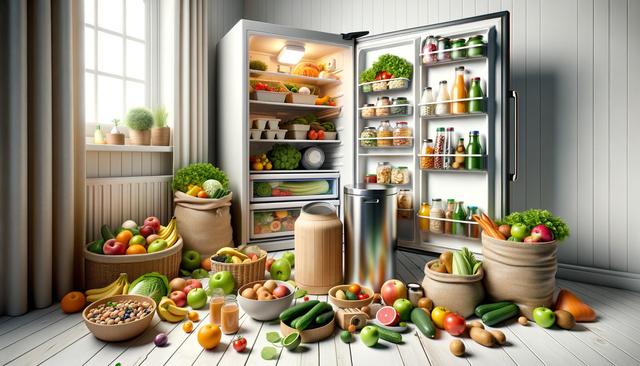
Simple and Effective Ways to Reduce Food Waste at Home
Understand the Impact of Food Waste
Before making any changes, it’s important to understand why food waste matters. Globally, about one-third of all food produced is never eaten. This has serious environmental consequences, including the unnecessary use of water, land, and energy. Additionally, food waste contributes significantly to climate change through methane emissions from landfills. By becoming aware of these impacts, individuals can better appreciate the importance of making small changes at home that collectively make a big difference. Recognizing the broader implications helps motivate consistent practices that prevent waste.
Food waste also affects communities. When edible food is discarded, it’s a missed opportunity to support those facing food insecurity. Being more mindful of what we buy, cook, and throw away can lead to a more sustainable and equitable food system. Raising awareness within your household or community can amplify the positive effects of your efforts.
Plan Meals and Shop Smart
One of the most effective ways to reduce food waste is by planning meals in advance. Creating a weekly meal plan helps ensure that you only buy what you need and that perishable items are used before they spoil. This approach not only cuts down on waste but also helps you save money and time throughout the week.
When grocery shopping, make a list based on your meal plan and stick to it. Avoid impulse buys that may not get used in time. Be realistic about how much food your household actually consumes. Additionally, consider these tips:
- Check your pantry and fridge before shopping to avoid buying duplicates.
- Choose items with a longer shelf life if you don’t plan to use them immediately.
- Buy loose produce so you can select the exact amount you need.
Shopping smart is a simple habit that can significantly reduce the chances of food going to waste.
Improve Food Storage Practices
Proper storage can dramatically extend the life of your food and help prevent spoilage. Knowing how to store different types of food correctly is key. For example, storing apples separately from other fruits can prevent them from ripening too quickly, and leafy greens last longer when wrapped in paper towels inside a container.
Here are some general tips for better food storage:
- Keep your refrigerator at the right temperature (below 40°F or 4°C).
- Use clear storage containers to easily see leftovers.
- Label and date your food to track freshness.
Freezing is another excellent way to preserve food you can’t use right away. Many items, from bread to cooked meals, freeze well and can be defrosted when needed. By storing food more effectively, you can significantly reduce waste while making your groceries last longer.
Get Creative with Leftovers
Transforming leftovers into new meals is a practical and enjoyable way to cut down on waste. With a little creativity, yesterday’s dinner can become today’s lunch or even tomorrow’s snack. For example, roasted vegetables can be turned into a hearty soup, and rice can be used in stir-fries or casseroles.
Here are some ideas to repurpose leftovers:
- Use overripe fruits in smoothies or baked goods.
- Make broth from vegetable scraps or bones.
- Combine small portions of various leftovers to create a unique meal.
Meal prepping and batch cooking also help reduce waste by encouraging the use of all ingredients. If you’re short on ideas, there are many online resources and cookbooks dedicated to leftover-friendly recipes. Making the most out of what you have not only prevents waste but also fosters resourcefulness and culinary creativity.
Compost What You Can’t Use
Even with the best planning and storage, some food waste is unavoidable. Composting is a sustainable way to handle food scraps and keep them out of landfills. Items like fruit peels, vegetable trimmings, coffee grounds, and eggshells can be composted and turned into nutrient-rich soil for your garden or local community projects.
If you’re new to composting, there are several options to consider:
- Home compost bins for backyards or small spaces.
- Indoor composting systems for apartments.
- Community compost drop-off programs.
Composting not only reduces the volume of waste sent to landfills but also enriches the soil, supporting healthier plant growth. By incorporating composting into your routine, you can close the loop in your food consumption cycle and contribute to a more sustainable environment.
Conclusion: Small Changes Make a Big Difference
Reducing food waste doesn’t require drastic changes—small, consistent actions can lead to meaningful results. From meal planning and smart shopping to better storage and creative cooking, each step plays a role in minimizing waste. Composting helps manage the scraps that are left behind in a responsible way. By adopting these practices, individuals can save money, support the environment, and contribute to a more sustainable food system. Whether you’re just starting or looking to improve your habits, every effort counts in the journey to reduce food waste.